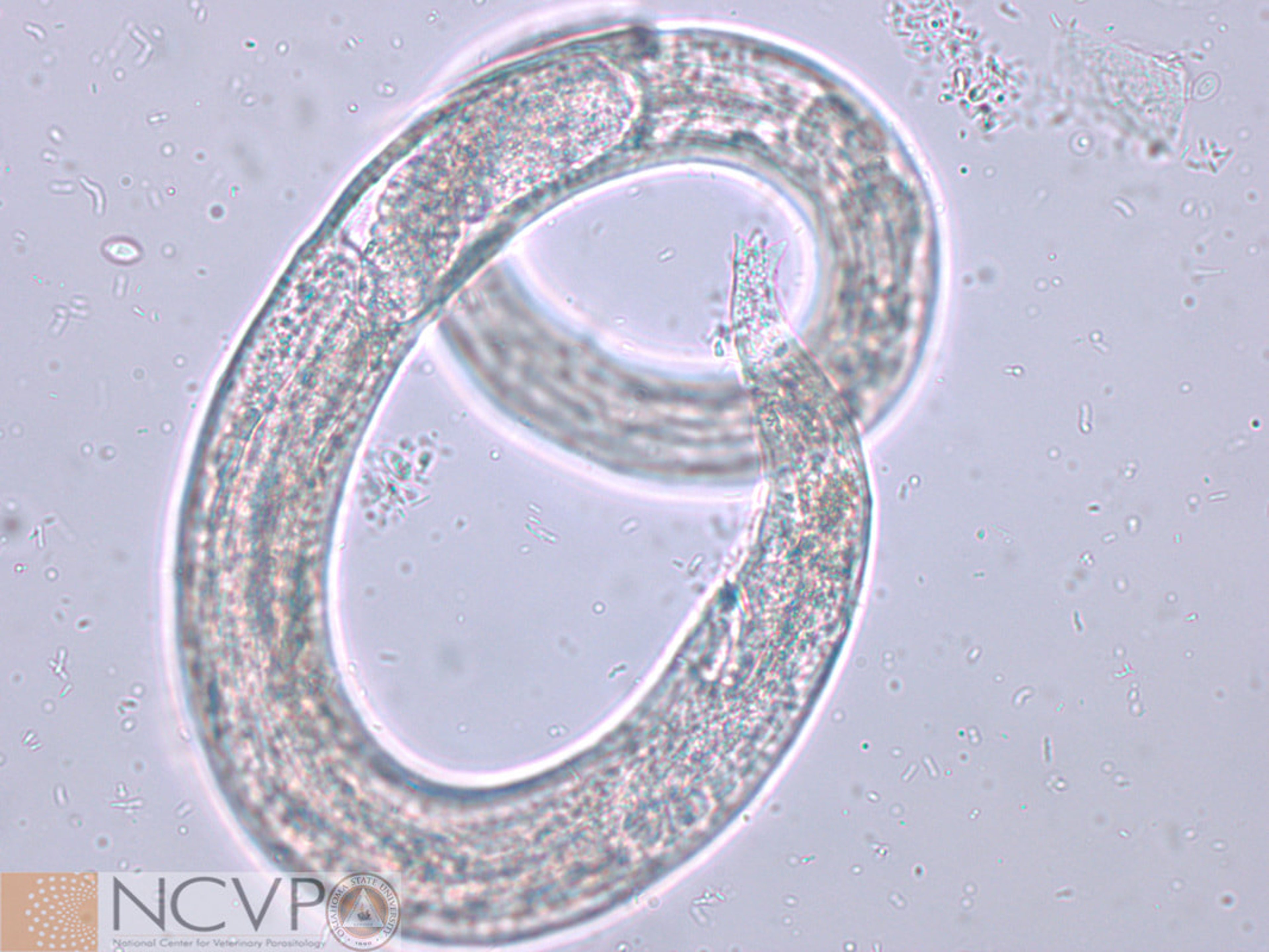Courtesy of the National Center for Veterinary Parasitology, Oklahoma State University.
Ollulanus tricuspis is a small worm, ≤1 mm long, that infects several animal species, typically cats and other felids, in countries around the world. Infections have recently been demonstrated in dogs in Japan. Parasitism occasionally induces a mild erosive or catarrhal gastritis. Vomiting minutes to a few hours after eating is a common sign. The female worms are viviparous, so massive infections can build up endogenously. Transmission is via vomitus.
Diagnosis is by microscopic demonstration of larvae (~500 mcm) or adult worms in vomitus or stomach contents. The use of a Baermann apparatus enables the separation of the worms from ingesta, after which they are easier to observe. Parasites are rarely present in feces, because they are usually digested before being passed. Therapeutic efficacy in cats has been demonstrated with fenbendazole (20–50 mg/kg/day, PO, for 3 days); however, this is not an approved treatment.




